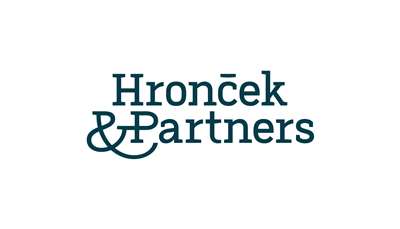The acquisition of company shares as a form of employee remuneration is still not widely used in practice, at least not to the extent that it is in other countries, particularly in the West. However, this method of employee remuneration is gradually becoming more common in our country and is finding its place in the functioning of many companies due to its numerous advantages. Unlike in the past, when share plans were reserved primarily for management groups, today the acquisition of company shares is a proven method of rewarding ordinary employees as well.

In addition to the financial benefits provided to employees, there are other positive aspects of employee share ownership that benefit both parties, i.e., the employee and the employer. These aspects include, in particular, an increase in employee interest, as they move from a purely employee position to a position similar to that of a company owner by becoming a shareholder. This whole process has a positive effect on the employee's motivation to take an interest not only in their place in the company as an individual, but also to better understand their position in the company as part of a team that is working towards more promising goals than just the next paycheck. The basic condition for granting employee shares is usually that the employee remains with the company for a certain agreed period of time, which also contributes to employee loyalty and reduces the considerable financial and time costs incurred by the employer in selecting and training new employees. The amount of income an employee receives from their shares depends on the employer's financial results, which motivates the employee to contribute as much as possible to the achievement of the employer's goals. For the employer, this form of remuneration has positive effects in terms of cash flow management and also helps to retain key employees.
Company shares also play an important role today, serving as a motivation through profit sharing, for example for suppliers or other important business partners, and are therefore not limited to employees. They are used mainly in the growing start-up sector, which more often than hiring employees uses the services of freelancers and suppliers.
The legal framework for employee shares therefore encompasses both labor and commercial law, and tax assessment is also important.
Shares and types of shares
A share is a type of security that represents the rights of a shareholder as a partner to participate in the management of the company, its profits, and the liquidation balance after the company is dissolved, in accordance with the law and the company's articles of association.
A joint-stock company may only issue the types of shares that are explicitly specified in the Commercial Code, whereby an amendment to the Commercial Code effective on January 1, 2002, abolished employee shares as a special type of share, with effect no later than January 1, 2004. The main reason for the abolition was the implementation of the second capital directive emphasizing the principle of creating and maintaining the amount of share capital. Since employee shares, as originally regulated in our legal system, allowed for the non-payment of a certain part of the nominal value, they came into conflict with this directive.
Currently, Slovak law provides for only two types of shares according to the scope of rights to which the shares entitle their owners – ordinary shares and priority shares. Ordinary shares always carry voting rights and no special rights. Preference shares give the shareholder a preferential right to dividends, and their total nominal value may not exceed half of the share capital.
Although employee shares are no longer established as a special type of share, the legal regulation of joint-stock companies continues to provide for the acquisition of shares by employees and also offers certain advantages to employees when acquiring company shares, or advantages or a simplified procedure for issuing shares to company employees (Sections 161a( 5, 161e(2) (effective from 1 January 2024, this will be 161e(7), 178(4), 203(1), § 204(4), 204a(7) of the Commercial Code).
Existing legal regulation of employee shares
Slovak law generally regulates the issue of employee shares, but only for simple joint-stock companies. The fact that Slovak law only mentions this topic marginally can be seen as an advantage for the possibility of flexible direction of the company when planning the introduction of employee shares.
The purpose of this legislation is to support and develop start-ups, including by making it more attractive (easier) for persons whose activities are related to the company's business to participate in its ownership.
Several conditions must be met by law before a company can subscribe for shares forming its share capital. First, the subscription of own shares must be approved by the company's general meeting. This approval must be granted in advance (i.e. before the subscription of own shares) and must specify the conditions under which the company may subscribe for its own shares (in particular, the maximum nominal value of the shares that the company may subscribe for and the period during which the company may subscribe for the shares, which may not exceed 18 months). The second condition is that the subscription of own shares must be limited to cases the shares are intended for transfer to employees of the company and to other natural persons engaged in business on the basis of a trade license or on the basis of a license other than a trade license, whose results of activities for the company are subject to intellectual property rights (i.e., persons directly involved in the company's production process). The shares must be transferred to these persons within five years of their subscription by the company. At the same time, as a result of the subscription of own shares, the company's equity may not fall below the value of the share capital together with the reserve fund (third condition) and the sum of the nominal values of the shares subscribed by the company, which form its share capital, may not exceed 20% of the company's share capital (fourth condition).
If the company's articles of association provide for and regulate this possibility of acquiring own shares, the company may, even without prior approval by the general meeting, acquire its own shares for the purpose of further transfer to employees of the company or to other natural persons engaged in business on the basis of a trade license or on the basis of a license other than a trade license, whose results of activities for the company are subject to intellectual property rights.
It follows from the above that specific legal regulation of employee shares exists only in the environment of simple joint-stock companies, and for other types of companies, the general rules for the transfer of shares must be respected when transferring shares to employees. As already mentioned, in addition to the general rules on share transfers, the law also regulates certain advantages for the acquisition of company shares by employees.
Options for Slovak companies to provide employee shares
In Slovakia, companies have three basic options for providing shares to employees (or other persons, such as suppliers).
The first option is the direct transfer of a business share or company shares, which is carried out by transferring the shares to the employee after a symbolic contribution by the employee.
The second option is to grant the right (option) to acquire company shares in the future at a predetermined price, which in most cases is lower than the market price. We will discuss the acquisition of employee shares through option plans in more detail in a separate article.
The third option is the issuance of shadow shares or shares in the company (so-called phantom stocks), which does not involve the actual provision of shares or interests, and the employee does not become a registered owner of the company, which distinguishes this option from the first and second options. What is important here is the so-called shadow share in the company's business, which is comparable to a silent partnership, which may offer certain tax benefits. The employee acquires the shadow share on the basis of a contract with the company, which guarantees them the same scope of property rights and benefits as ordinary shareholders.
In order to set up employee shares correctly and in a way that is beneficial to both parties, it is important that a lawyer and tax advisor with previous experience in employee share issues are involved in the planning of the share issue system. In addition to establishing the rights and obligations associated with employee shares, this institution also entails several tax and contribution obligations for both the employee and the company. However, these should not deter companies from introducing employee shares.
